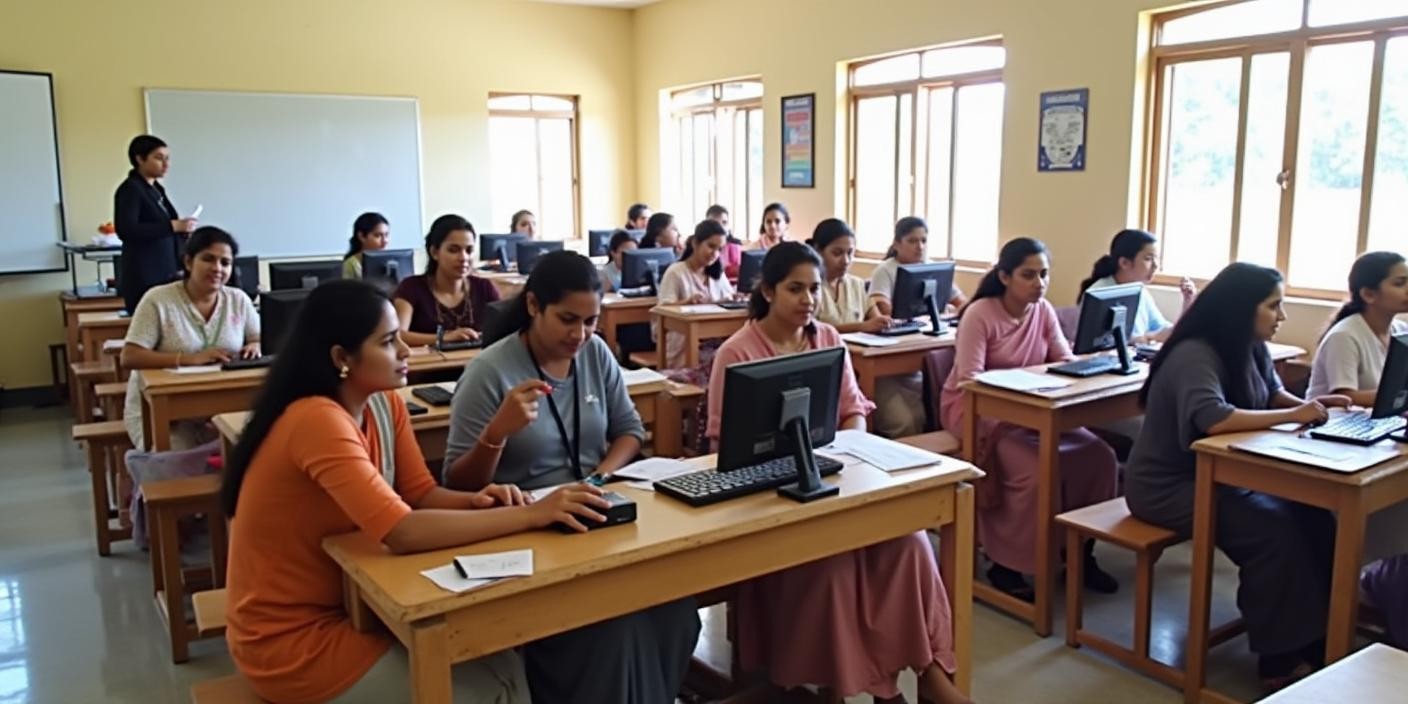
Future-Proofing India’s Youth with Apprenticeship Linked Learning Programs (ALLP)
India’s workforce is on the brink of a transformation, driven by rapid technological advancements and evolving industry demands. The country’s demographic dividend presents immense opportunities, but ensuring that young professionals are equipped with adaptive, job-ready skills is a challenge. Apprenticeship Linked Learning Programs (ALLP) have emerged as a crucial strategy in bridging the skills gap, providing real-world experience alongside academic learning. With a strong push from youth skill development initiatives and alignment with the Skill India Mission, ALLP is shaping the future of employability in India.
The Shift Towards Experiential Learning
Traditional education models are increasingly being complemented by experiential learning, where students gain hands-on experience through apprenticeships, internships, and vocational training. Industries today require candidates who can seamlessly transition from learning to application, making ALLP a preferred approach. Countries with robust apprenticeship ecosystems have witnessed higher employability rates, and India is steadily moving in that direction with structured frameworks supporting workplace-integrated learning.
Industry-Academia Collaboration: A Game Changer
A significant trend in apprenticeship-linked programs is the strengthening of industry-academia collaboration. Employers are no longer passive recruiters; they are active participants in designing curriculum, training students, and creating employment pathways. This ensures that skill development is aligned with industry needs, reducing the gap between education and employability. Institutions that integrate ALLP within their programs provide students with not just theoretical knowledge but also critical industry exposure, making them workforce-ready from day one.
Digital Transformation and Hybrid Learning Models
As digital learning gains momentum, ALLP is evolving beyond traditional, in-person apprenticeships. The rise of hybrid models—blending online coursework with on-site industry training—has increased accessibility to apprenticeship opportunities across diverse geographies. This shift is particularly beneficial for India’s tier-2 and tier-3 cities, where infrastructure and access to physical training centers can be limited. TeamLease EdTech Foundation’s initiatives in skill-building leverage these advancements, ensuring that quality apprenticeship programs reach a wider audience.
Sector-Specific Growth and Emerging Opportunities
Certain industries are witnessing a surge in apprenticeship-linked programs, driven by sector-specific demands. Areas like renewable energy, healthcare, logistics, and digital technology require a continuous influx of skilled professionals, and ALLP is proving instrumental in meeting these needs. The Skill India Mission has been pivotal in promoting apprenticeships across these high-growth sectors, making structured on-the-job training an integral part of workforce development.
Policy Support and Government Initiatives
Government-backed initiatives are providing a strong foundation for ALLP to thrive. Policies encouraging apprenticeship adoption, financial incentives for companies, and flexible training models are helping create a favorable ecosystem for learners and employers alike. The National Apprenticeship Promotion Scheme (NAPS) and related frameworks are ensuring that apprenticeship programs are not just an alternative but a mainstream approach to education and employability.
The Road Ahead: A Future Built on Skills
Apprenticeship Linked Learning Programs are not just about job placements; they are about preparing a workforce that can adapt to future disruptions. With advancements in AI, automation, and digital transformation, the nature of work is changing, and so must the approach to learning. Organizations that invest in apprenticeships today are future-proofing both their talent pipelines and the larger economy.
As India accelerates towards a skill-driven future, the question remains—how can businesses, educators, and policymakers further strengthen apprenticeship-led learning to ensure that no young professional is left behind?
FAQs
1.What skills does TeamLease EdTech Foundation emphasize for a career in
the BFSI sector?
We focus on essential skills like digital
banking, financial analysis, data security, risk management, and
customer service. Additionally, we integrate critical soft
skills training—such as ethical decision-making and
communication—to prepare candidates for BFSI’s customer-centric
and compliance-driven environment.
2.How can young professionals benefit from TeamLease EdTech Foundation’s
BFSI training programs?
Through targeted training,
mentoring, and hands-on learning experiences, our curated BFSI
programs ensure participants gain both technical and practical
skills. Our industry-aligned approach equips young professionals
to confidently enter BFSI roles with relevant, job-ready
capabilities.
3.Why is ethical training a priority in TeamLease EdTech Foundation’s
programs for BFSI?
In BFSI, handling sensitive information
and ensuring compliance is crucial. Our programs emphasize
ethical practices and integrity to foster trust and
responsibility in young professionals, helping them build
long-lasting careers rooted in reliability and accountability.
4. How does TeamLease EdTech Foundation leverage technology in BFSI
training?
We incorporate digital tools and simulated
learning environments into its BFSI training. This tech-driven
approach allows learners to gain practical experience with tools
used in banking and finance, making the transition to real-world
roles smoother and more effective.
5. How does TeamLease EdTech Foundation reach youth in underserved
communities for BFSI skilling?
By partnering with local
organizations and adopting hybrid training models, we have
expanded our reach into rural and semi-urban areas. This
inclusive approach ensures that youth from diverse backgrounds
have equitable access to BFSI skilling opportunities,
contributing to a more inclusive workforce across the sector.




